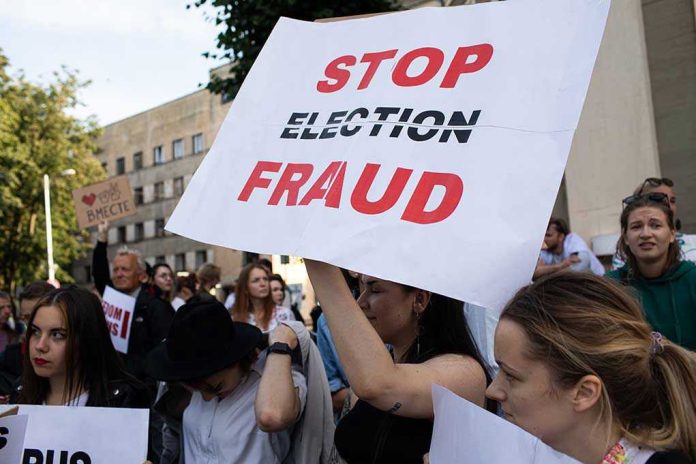
A sweeping executive order threatens to reshape U.S. elections, sparking intense debate over state rights and voter access.
Story Snapshot
- President Trump plans an executive order mandating voter ID for all elections, with no exceptions.
- Restrictions on mail-in voting will be limited to the very ill and military personnel far from home.
- Legal and constitutional challenges are expected due to state control over election administration.
- Federal courts may play a decisive role in the order’s fate.
Trump’s Executive Order Plan
President Donald Trump, determined to shape national election policy, announced his intent to issue an executive order requiring voter identification for all U.S. elections. This sweeping mandate would leave no exceptions, aiming to standardize election procedures nationwide. Trump also plans to limit mail-in voting to specific groups, further stirring controversy. The announcement was made via a post on Truth Social, though no timeline or detailed specifics were provided.
The proposal comes amid ongoing debates over election integrity and the legitimacy of past election outcomes. Trump’s plan is part of a broader effort to address concerns about election fraud, a topic that has polarized the nation. While supporters hail the move as necessary for election security, opponents argue it risks disenfranchising voters, particularly minorities and low-income individuals who may face challenges obtaining identification.
Legal and Constitutional Challenges
The executive order is likely to face immediate legal and constitutional challenges. Election administration has traditionally been a state responsibility, with the federal government playing a limited role. Legal experts widely argue that the president lacks the unilateral authority to impose nationwide voting standards, which could render the order unconstitutional. Previous executive actions on voting have faced similar legal hurdles, resulting in injunctions and prolonged court battles.
Moreover, state election officials, responsible for implementing federal mandates, may resist such sweeping changes. Some Republican officials have already expressed reservations about banning mail-in voting, highlighting a divide even within Trump’s own party. The federal courts are expected to play a critical role in adjudicating the legality and scope of the proposed executive order.
Impact and Implications
If implemented, the executive order would fundamentally alter U.S. election administration. In the short term, legal challenges are expected to delay or block its implementation. The long-term implications could include a significant shift in the balance of power between federal and state governments regarding election oversight. Critics warn of potential disenfranchisement of eligible voters who lack government-issued IDs, a group that disproportionately includes minorities, the elderly, and low-income individuals.
Trump Announces Plan for Voter ID Executive Order: 'No Exceptions!': It’s about time we got serious about election integrity. pic.twitter.com/ukaLy66p73
— TRUE Q PATRIOT ✨ (@TrueQPatriot1) September 2, 2025
The economic impact could also be significant, with states potentially facing increased administrative costs to comply with new ID requirements. Additionally, the announcement intensifies partisan conflict over election rules, a debate that is likely to dominate the political landscape leading up to the 2026 midterm elections.
Sources:
Official White House Executive Order (March 2025)
“`







